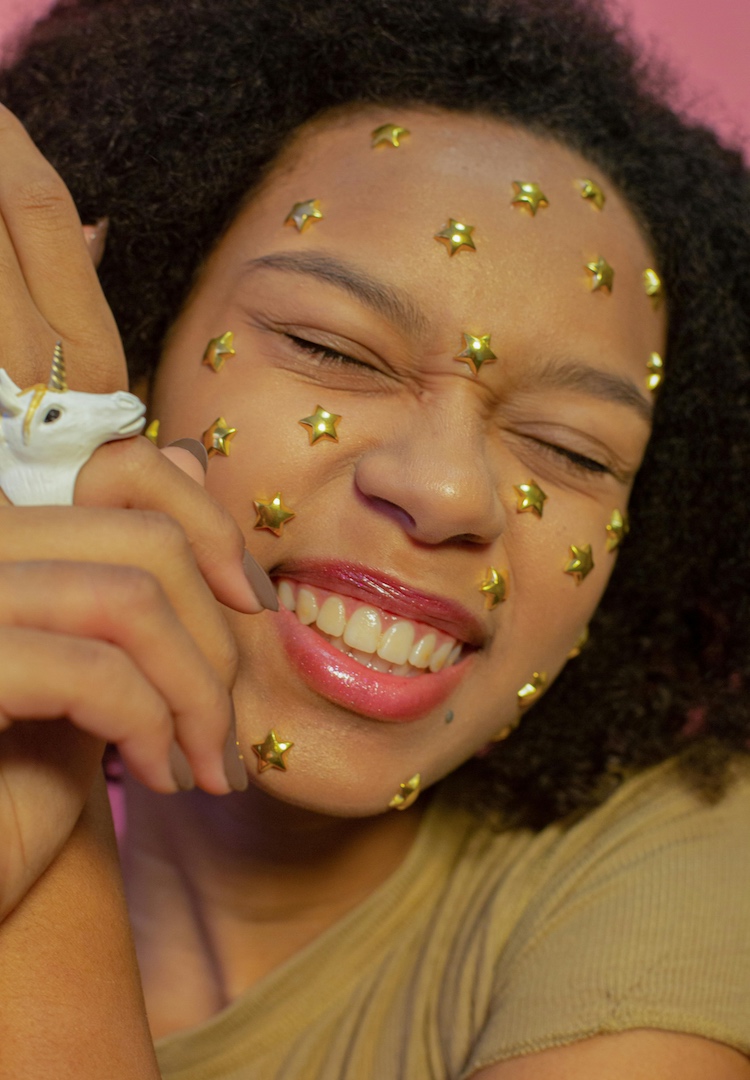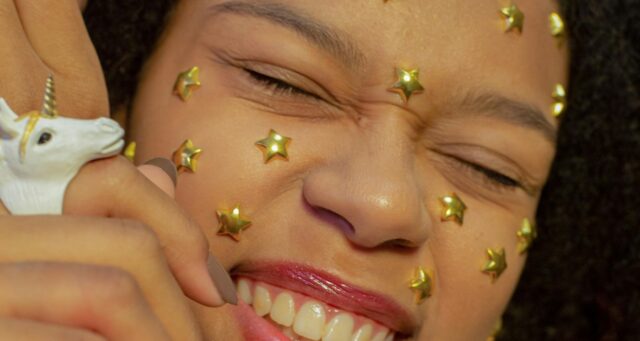
I’m sure even the most genetically blessed among us have experienced their fair share of skin troubles. From stubborn pimples that refuse to budge to other skin issues, like dermatitis, it seems no one is ever totally immune from annoying little skin flare-ups.
As someone who’s had my fair share of skin setbacks, acne is one of the most frustrating issues I’ve dealt with. I’ve taken medication, used topical treatments and spent far too much on skincare in an effort it once and for all.
For more perspectives on wellness, head on over to our Health section.
However, it’s fungal acne that often draws the most disdain. Anything with the word ‘fungal’ can immediately trigger a range of misconceptions, often leading to a warped idea of what the condition actually is. For one, I’d wager that you didn’t know fungal acne isn’t actually considered a type of acne at all.
To help debunk some of the common myths surrounding fungal acne, I turned to Dr Niyati Sharma, the founder of Inside Out Dermatology in Melbourne, and Gabrielle Singh, dermal therapist and founder of Iyvos Skincare. Though fungal acne might feel frustrating, both skin experts confirm there are plenty of options and you’re absolutely not alone in going through it,
What is fungal acne?
Both Dr Sharma and Gabrielle immediately say the same thing: fungal acne isn’t actually acne. “It’s a condition called ‘malassezia folliculitis’, caused by an overgrowth of yeast that naturally lives on our skin,” Gabrielle says.
Dr Sharma echoes this sentiment. “Unlike hormonal acne, which is [triggered] by changes in hormones and oil production, malassezia folliculitis arises from the overgrowth of yeast in hair follicles.”
All that’s to say is that fungal acne is an entirely different and seperate issue from regular acne. While it might look similar at face value, both skin experts confirm that fungal acne behaves differently, meaning it requires different treatments.
Fungal acne tends to feel itchy, appearing as bumps on the chest, back and shoulders. As Gabrielle explains, it also doesn’t typically respond to traditional acne treatments (in some cases, these can make it worse).
It also doesn’t typically lead to scarring in the same ways that cystic acne can. “[But] if it’s picked or scratched, it can lead to dark spots such as your hyperpigmentation. Being gentle with your skin and patient with the process makes all the difference,” Gabrielle says.
How do you treat fungal acne?
The good news is that acne is treatable, Gabrielle says. The key is targeting the yeast.
“Antifungal ingredients like ketoconazole or selenium sulphide, which are often found in anti-dandruff shampoos, can be effective when used on the skin for a short time,” she tells me.
Dr Sharma agrees, explaining that certain anti-dandruff shampoos can be helpful in managing fungal acne and points out that niacinol two per cent shampoo that contains anti-yeast properties that can target affected areas.
“[However], one of the most effective treatments is Hydrozole cream, which combines an anti-yeast medication with a safe anti-inflammatory cortisone,” she adds. Essentially, this cream is designed to combat any yeast overgrowth, while also soothing your skin.
B0th Gabrielle and Dr Sharma recommend, above all, keeping treatments simple and suggest avoiding heavily, oily skincare and wearing breathable clothing (especially if you live in a warm or humid environment).
“Showering after sweating, switching to lightweight skincare and using the right ingredients consistently can really help manage it,” Gabrielle adds. “But if it’s persistent, it’s always worth seeing a dermatologist. Sometimes oral anti-fungals are needed for a short period.”
Can you prevent fungal acne from happening in the first place?
There are a few preventive measures that you can take to avoid fungal acne from taking hold. From keeping your skin barrier healthy and avoiding overloading your skincare routine with too many active ingredients, to changing out of your workout clothes quickly and rinsing off any sweat, Gabrielle says it’s essential to let your skin breathe.
Find more about fungal acne here.
This article How to tell if your acne is fungal, according to two skin specialists appeared first on Fashion Journal.
2025-05-01 05:30:00
#acne #fungal #skin #specialists
Source link
















